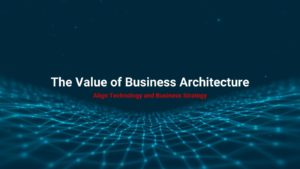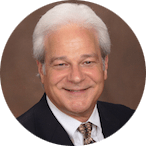In my decades-long career in the industry, I’ve seen a lot of things come and go. I was excited to witness and be a part of some, while I couldn’t wait for others to fade away. Many of the recent trends excite and encourage me as they center around developing solid, well-engineered business solutions in a cadence and timeframes that are vital in this age of speed and agility. Some of these “new” methods and principles around Agile development and DevOps are actually not new at all and, dare I say, they are a bit old school.
How We Did Things “Back in My Day”
In the 60s and 70s, I developed software solutions for big corporations, so I remember an era when analysts and programmers sat WITH the business. We interacted continuously and seamlessly with the line of business leaders and domain or subject matter experts. There were no middlemen, liaisons or physical distances to deal with. We were so in sync that we were finishing each other’s sentences and iteratively sharing ideas about what to do next.
We also did our own testing, integration and release into production. Much of it was done at 2:00am or on the weekend. If we had production issues, we’d get called at all hours to make the fix. Life was simple. The work was rewarding, and it was clear who was accountable. As a result of this accountability, responsibility and sharing of consequences, we were very quality-focused.
Then Something Changed…
For some reason, in the late 70s and 80s, we began removing this intimacy, and I was as guilty as anyone. In the name of building the IT profession, careers, camaraderie, setting standards and creating leverage, we centralized the IT group. Yet we still tried to remain connected to our business partners and their line of business or division.
…And it Kept Changing
During the 90s and 2000s, we went even further. In the name of productivity and leverage, we began to outsource, offshore, hire “variable labor,” encourage work from home and hyper-specialize into Centers of Excellence (COEs). We also pulled people out of the line of business they supported and created huge shared services organizations.
Over time, these trends achieved the opposite of efficiency or effectiveness and created huge blind spots. As a result, the smaller, more intimate companies are able to beat the larger, enterprise-scale legacy corporations. These upstarts and modern companies have better speed, agility, cost and job satisfaction among their technical teams. However, with the RE-introduction of the Agile method, many of the larger companies we work with are returning to intimacy, business engagement, ownership, accountability, connection and fun.
If you live and work long enough in this industry, you’ll witness fads that come and go, sometimes at great expense. You’ll also see the underlying patterns and sound, human principles that sustain throughout and return us back to center. It’s truly exciting to see and be a part of it all.
Author: Charlie Feld, Founder, The Feld Group Institute
Connect with Charlie Feld on LinkedIn ![]()




